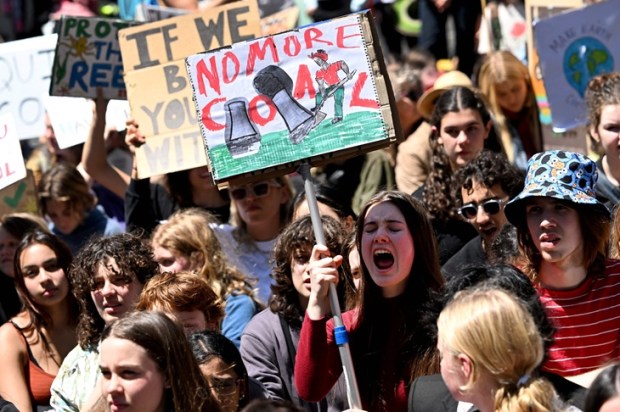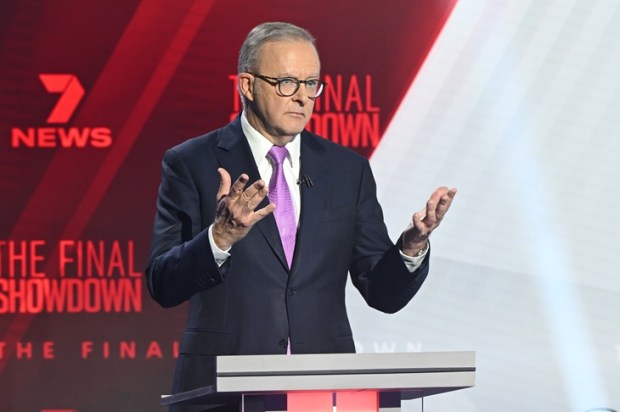An apparent spike in sexist and misogynistic behaviour by male students has given rise to a new training program for teachers at Catholic and private schools. This national research project will provide every Catholic and independent schoolteacher with conversation guides and role-play scripts to ‘combat the sexism and toxic masculinity of male students’.
Why the program is aimed only at independent and Catholic schools is not explained but, in launching the program, funded by Australia’s National Research Organisation for Women’s Safety (ANROWS), it was claimed ‘toxic masculinity and misogynistic gender narratives’ gaining traction online are seeping into classrooms, threatening gender equality, and contributing to gender-based violence. The project specifically attributes these developments to Andrew Tate and, sensationally, Jordan Peterson – who champions a very different narrative from Tate on the issue of masculinity – describing both as ‘notorious’ masculinity influencers.
The claim that masculinity and traditional gender roles are ‘toxic’ forces of oppression is now a common refrain in cultural commentary, political discourse, and in our schools. But teaching boys that they are inherently bad, or that masculinity is synonymous with toxicity, is itself offensive, and has significant negative impacts on their development and self-perception.
Masculinity encompasses a range of behaviours, values, and characteristics traditionally associated with being male. Historically, certain aspects of masculinity have been emphasised, such as strength, bravery, stoicism, and assertiveness. These traits are positive. Other masculine-aligned traits like courage, independence, and leadership are also positive and there is great danger in teaching boys that their natural tendencies are wrong simply because they are traditionally masculine.
One school in Victoria made its male students stand up and say sorry to a girl as a symbolic gesture of apology for the behaviours of their gender that, in the past, have hurt or offended girls and women. Another school instructed staff at an all-boys school they should no longer use the words ‘boy’ or ‘young man’ – apparently problematic vocabulary. The message to these young men – that they are collectively guilty for the actions of others and, by implication, are considered criminals-in-the-making – is offensive and should be loudly condemned.
Constantly telling schoolboys their masculinity – an element at the very core of their identity – is dangerous, poisonous, and even toxic, unsurprisingly and quite rightly leads to resistance and rejection. Boys become defiant, not because they embrace harmful behaviours, but because they reject the notion that their identity is flawed. This defiance is a natural response to being unfairly judged.
In June, former Prime Minister Julia Gillard noted that campaigns for ‘gender equality’ have been unable to engage young men. Simply attacking those who do not agree with you will not move us towards the goal of equality and, as Ms Gillard noted, may even push us further apart.
Accepting and encouraging traditional masculinity is not a license to do things that are wrong, but being a boy who acts like a boy is not a crime and the sooner we remember to value their traits, the better. Weighing boys down with collective guilt and negativity is divisive and counterproductive. Women are neither their enemies on the battlefields of the culture wars nor damsels in distress.
Some will argue that once gender inequality disappears, gender violence will disappear, but this assumption is not supported by the evidence. The Scandinavian countries of Iceland, Norway, Sweden and Finland all rank in the top five of the World Economic Forum’s gender-equality rankings, with scores of 81-91 per cent and yet these countries have gendered violence rates above the EU average and higher than Australia’s. According to Our Watch, about 39 per cent of women over the age of 15 in Australia have experienced violence. In Sweden that figure is 46 per cent, suggesting that a decades-long focus on gender equality has not reduced violence against women. In fact, the opposite may be true.
Through its National Plan to End Violence against Women and Children 2022-2032, the Albanese government made the claim that it will work to end gendered violence in just one generation through attitude change. But a blanket focus on all boys and men, and assigning guilt to the entire male sex, is not only offensive but a waste of time.
It is unfortunate that in Australia today, activists will view anything that could be said to lift young men up and give them confidence as a threat which needs to be squashed, resulting in demoralisation and resentment.
It is vitally important to rebalance the narrative and promote positive masculinity so that we help boys develop into confident, empathetic, and well-adjusted individuals who realise their full potential without fear of judgment or rejection. No man should feel ashamed of being male.
Colleen Harkin is a Research Fellow and National Manager of the Class Action program at the Institute of Public Affairs.

























